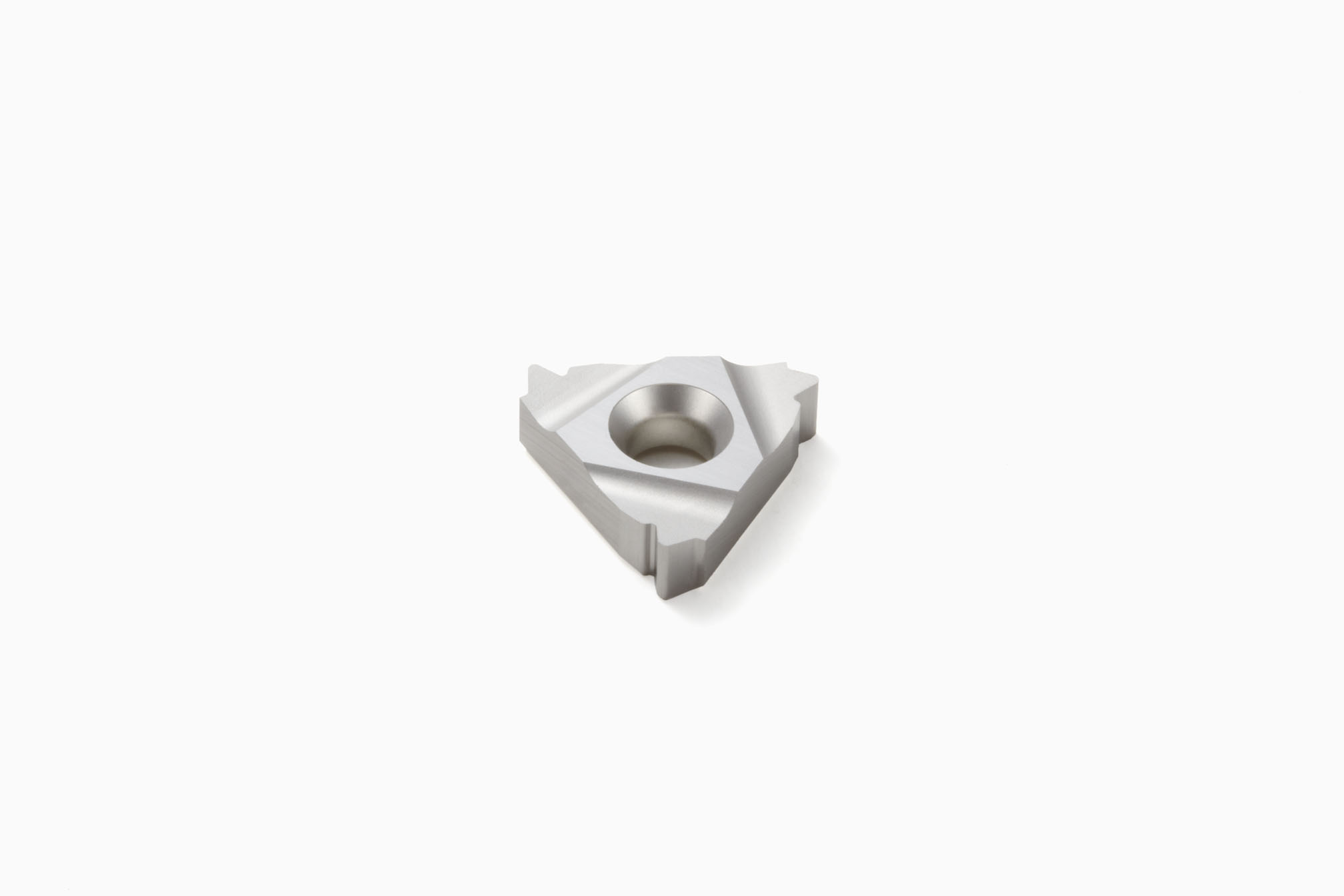UNJ and MJ Thread Profiles
UNJ and MJ Thread Profiles
With the introduction of 13 new full-profile threading inserts, Seco Tools now offers a full range of UNJ and MJ thread profiles for both external and internal applications. Shops that need to generate high-precision threads in stainless steels and heat-resistant nickel-based and titanium alloys will benefit from the extremely tight-tolerance profiles of these inserts.

With the introduction of 13 new full-profile threading inserts, Seco Tools now offers a full range of UNJ and MJ thread profiles for both external and internal applications. Shops that need to generate high-precision threads in stainless steels and heat-resistant nickel-based and titanium alloys will benefit from the extremely tight-tolerance profiles of these inserts.
Manufacturers, especially those in the aerospace sector, can now extend tool life while eliminating process inconsistency and profile inaccuracy with these new inserts that are part of an all-encompassing range of threading solutions from Seco.
Hazardous, tangled curly chips can stall threading production, but the new inserts pair with Seco holders featuring the company's Jetstream Tooling high-pressure directed coolant technology that keeps the cutting zone clear. To guide and steer chips in specific directions away from the cutting zone, these holders deliver a concentrated high-pressure, high-velocity jet of coolant directly to the ideal position close to the cutting edge.
Threading titanium and similar materials produces tough chips that decrease tool life. With the improved chip control of Jetstream Tooling, shops can use 30 percent to 60 percent higher cutting speeds without compromising thread surface quality.
UNJ thread profiles produce inch threads; MJ profiles handle the corresponding metric versions.





